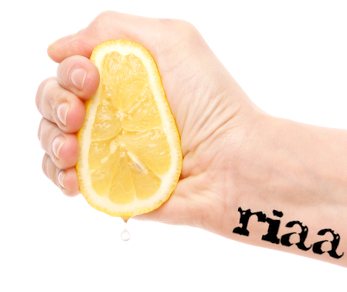Ending a five-year battle over music piracy, LimeWire founder Mark Gorton and his file-sharing company have agreed to compensate the four largest U.S. record labels for damages in an out-of-court settlement of $105 million.
"We are pleased to have reached a large monetary settlement following the court's finding that both Lime Wire and its founder Mark Gorton are personally liable for copyright infringement," said Mitch Bainwol, chairman of the Recording Industry Association of America. "As the court heard during the last two weeks, Lime Wire wreaked enormous damage on the music community, helping contribute to thousands of lost jobs and fewer opportunities for aspiring artists."
The settlement amount is significantly lower than the $1.4 billion initially proposed by the plaintiffs, at $150,000 per infringing song, but it's still among the largest ever paid by a file-sharing company. Kazaa paid the industry $115 million in 2006 after agreeing to convert into a legitimate service, while Grokster said in 2005 it would pay up to $50 million after a court ruling concluded that the service could be held liable for copyright infringement by its users.
Founded in 2000, LimeWire has been a thorn in the side of U.S. record companies as the last major outfit operating within the U.S. that's been accused of employing music piracy as a business strategy. Where competitors like Grokster, Kazaa, BearShare, WinMX, and eDonkey either went legitimate or closed down, LimeWire kept on going despite legal hurdles and is estimated to have reached nearly 80% illegal file-sharing market share in 2007, according to NPD.
The company was forced to close its service in late 2010 after losing a court battle with music labels, and settled a separate copyright lawsuit by music publishers back in March – for which terms were not disclosed.
In the months following the LimeWire shut down a NPD report showed that only 9% of U.S. Internet users used peer-to-peer networks to obtain music, down substantially from 2007. Piracy may have slowed down, but as much as music labels would like to tout this as their victory, it's clear that many have just moved to direct download services like RapidShare and MegaUpload. If anything, the success of Spotify, iTunes and a few others shows that innovative music services and fair pricing are much more effective at fighting piracy than lawsuits and scare tactics.
